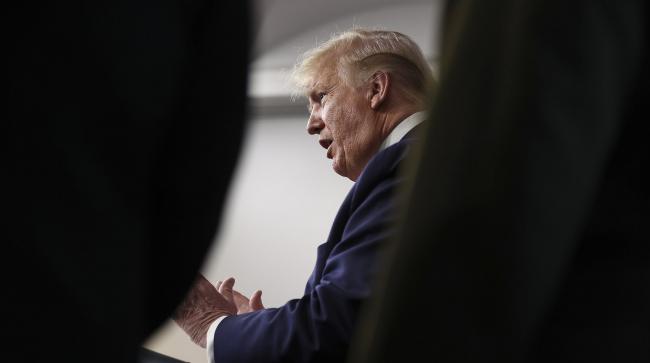(Bloomberg) -- President Donald Trump plans to sign an order Monday restricting access to several employment-based visas, potentially affecting tens of thousands of people seeking to work in the U.S., a senior administration official said.
The order will freeze access to new H1-B, H-4 and H-2B, L visas, and most J visas through the end of the year, the official said. The issuance of new green cards will also remain halted through the end of the year.
Trump acted as the U.S. faces an unemployment rate of 13.3% after businesses closed or reduced staff in response to the coronavirus pandemic. The president’s order won’t affect certain workers who are already in the U.S.
Speaking Saturday in an interview with Fox News, Trump said he wants Americans to take the jobs that would otherwise go to those granted the visas.
“We have plenty of people looking for jobs,” he told Fox. “I think it’s going to make a lot of people very happy. And it’s common sense.”
Trump tweeted at the height of the coronavirus pandemic that he planned to “temporarily suspend immigration into the U.S.” Industry groups, such as the U.S. Chamber of Commerce and the Information Technology Industry Council, wrote to Trump to express concern that restrictions would disrupt business and hamper growth.
In the past few years, the administration has been moving to tighten the H-1B program, and the approval rate for applications has fallen. The technology industry has relied on H-1B visas to hire foreign talent, particularly in the fields of science and engineering. Critics say some companies have abused the program to displace American workers.
H-1B visas are temporary work authorizations for people with highly specialized knowledge. The current cap for those visas is 85,000 annually. H-4 visas are issued to immediate family members of H-1B visa holders.
The H1-B program will be restructured to put an emphasis on would-be immigrants with the highest salary offers once the program restarts next year, the official said.
H-2 visas allow temporary work in agriculture, construction, forestry and many other industries.
The administration also plans to rewrite rules on which applicants will get priority for H1-B visas: those with with the highest promised wages.
©2020 Bloomberg L.P.
